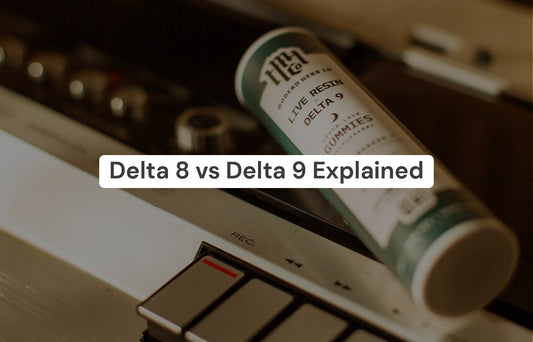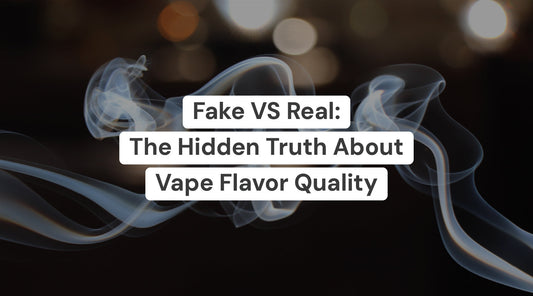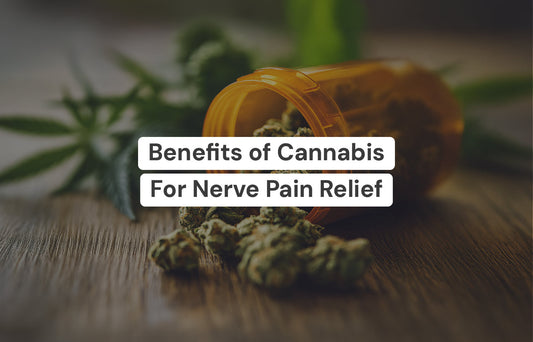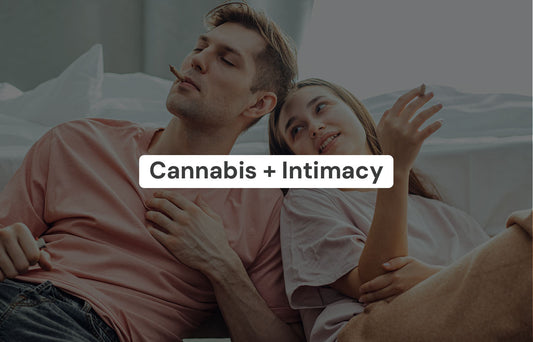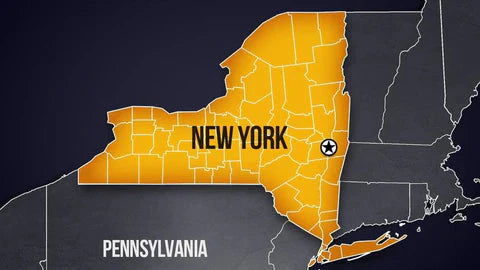
Hemp Grower Licensing in New York
OVERVIEW
In this post find an overview of New York's Hemp Pilot Program as well as links to the applications and details for applying. New York's Governor has recognized industrial hemp and smokable hemp flower as a promising new economic opportunity for farmers and recently signed legislation to solidify the status of industrial hemp as an agricultural commodity under New York Agriculture and Markets Law. New York State is administering an Industrial Hemp Agricultural Research Pilot Program, authorized by New York State law and 7 U.S.C. § 5940. The Department invites grower applications from individuals and businesses for the Industrial Hemp Agricultural Research Pilot Program.
Table of content

Industrial Hemp Agricultural Research Pilot Program Program Guidance For Period: January 1, 2020 – October 31, 2020
The 2018 Farm Bill significantly changed federal regulation of the growing of industrial hemp in the U.S. Foremost among those changes, industrial hemp is removed from the federal list of controlled substances, defining hemp as “the plant Cannabis sativa L. and any part of that plant, including the seeds thereof and all derivatives, extracts, cannabinoids, isomers, acids, salts, and salts of isomers, whether growing or not, with a delta-9 tetrahydrocannabinol concentration of not more than 0.3 percent on a dry weight basis.” In addition, the U.S. Department of Agriculture (USDA) has now established a national licensing system for hemp and adopted federal regulations for hemp licensing. Each state has the option to obtain primary regulatory authority for industrial hemp in that state, pursuant to a USDA-approved plan. The USDA’s Interim Final Rule, adopted November 1, 2019, can be found at https://www.ams.usda.gov/rules-regulations/hemp. In that New York State has not yet submitted a plan to USDA, the pathway to grow industrial hemp in New York State remains through participation in New York’s Industrial Hemp Agricultural Research Pilot Program, authorized under the provisions of the 2014 Farm Bill and administered by the Department of Agriculture and Markets. In 2020, anyone planning to grow industrial hemp for any purpose in New York must obtain an authorization as a Research Partner before they can undertake their project. The pilot program will terminate on November 1, 2020, pursuant to federal law. Prior to that time, the Department will advise research partners how they will be transitioned to the new licensing programs.
INDUSTRIAL HEMP AGRICULTURAL RESEARCH PILOT PROGRAM
For the period of January 1 ,2020 – October 31, 2020, industrial hemp and products derived from such hemp may be grown, produced and possessed in the state only as part of the Pilot Program. Research Partners approved by the Department may undertake research projects to study the growth and cultivation, sale, distribution, transportation and processing of such hemp and products derived from such hemp. Until a new licensing program is established, no other growing or processing of industrial hemp in New York State is permitted.1 1 Agriculture and Markets Law, Section 506
APPLICATIONS: PROCESS
Those seeking to grow and cultivate hemp in the Program must apply. If the application is approved, the applicant must execute a Research Partner Agreement, which, among other things, describes the authorized scope of work, establishes the standards for the work, and sets forth the respective duties and obligations of the parties. The steps to applying:
- The Department reviews the application and notifies the applicant of the decision.
- TheDepartmentwillsendapprovedapplicantsaResearchPartnerAgreementto be signed and notarized by the applicant.
- The applicant will return the signed and notarized Research Partner Agreement to the Department.
- Upon receipt of the signed Research Partner Agreement, the Department will issue and mail to the Research Partner (formerly the applicant) an official Industrial Hemp Research Partner Authorization and the fully executed Research Partner Agreement.
An applicant is not authorized to grow or cultivate industrial hemp until it has received the official Industrial Hemp Research Partner Authorization document from the Department.
APPLICATIONS: ELIGIBILITY
Each application and renewal application must include the following:
- A description and map of each location where industrial hemp will be cultivated, by physical address and by GPS co-ordinates, visually depicting the buildings, structures, and improvements on the premises and identifying their use, and describing the relevant activities conducted at the location
- A detailed research plan and summary of the issues and matters that the applicant intends to study in conjunction with growing or cultivating of industrial hemp
- A marketing plan
- A seed/propagule acquisition plan
- Statement of relevant experience of the individual responsible for the research project
- A nonrefundable $500 application fee. An authorization to conduct research in this Department pilot program is not a right. The decision to grant such an authorization is at the sole discretion of the Department based upon, among other things, its needs or interests, the evaluation of the proposed project,
and the qualifications and experience of the applicant. Disqualifying factors may include but are not limited to:
- An incorrect or incomplete application
- Poor research design
- Lack of experience or qualification to undertake the proposed project
- Recent drug-related felony convictions of researchers
- Proposing to use a growing or processing location already registered by an existing Research Partner
- Inability of the Department to adequately supervise or regulate the proposed project
- The proposed undertaking of medical research
- The proposed processing of food in such a way to concentrate CBD content. APPLICATIONS: AMENDMENTS Research Partners can submit requests to amend their original application by submitting an Amendment Form. Amendments may include, among other things, adding additional acreage, change of location of grow sites, and changes to the scope of work contained in the research plan set forth in the initial application. All requests to amend are subject to review and approval by the Department. Amendments to an existing Research Partner’s scope of work are not subject to the $500 application fee. Compliance with prior years’ program reporting requirements, if applicable, is a condition to the granting of an amendment.ACQUISITION OF SEEDS AND PLANTSPurchasing seed: Seed procurement is the responsibility of the Research Partner. Research Partners who plan to obtain seed through an international import should check with the seed supplier to determine what documentation is required for such a transaction.Selling seed: Viable industrial hemp seed shall not be sold to any individual or entity not authorized as a Research Partner. Purchasing hemp plants: Industrial hemp plants may be procured only by Research Partners and they may be purchased only from a registered nursery grower who is an authorized Research Partner (in New York State or in another state with a pilot program). All interstate shipments of hemp plants must be from a plant grower licensed in the state of origin or be accompanied by a phytosanitary certificate.
Compliance with seed laws: Be aware of plant variety protection (PVP) laws and regulations and be certain that the seed procured is in compliance with PVP and all other applicable New York State seed laws and regulations. More information on New York’s seed laws may be found at https://agriculture.ny.gov/regulations-article-9-inspection-and- sale-seeds-sections-ssss-136-142.
INSPECTIONS
The registered locations of a Research Partner are subject to inspection by the Commissioner and by his or her authorized agents, employees, or officers, pursuant to Agriculture and Markets Law Section 20, as often and to the extent necessary to ensure compliance with the respective Research Partner Agreement and State and Federal laws relating to the possession, sale, or cultivation of industrial hemp. The Commissioner may authorize agents, employees, or officers of the New York State Department of Health and law enforcement to accompany him or her during an inspection of the registered locations of a Research Partner. The Research Partner shall inspect the registered locations as often as necessary to ensure compliance with the requirements of the Program.
SAMPLING
Growers must submit a Harvest Report Form (https://agriculture.ny.gov/plant- industry/harvest-report-form) at least 20 days prior to the expected harvest date. Following receipt of the form, a Horticultural Inspector will contact the grower to set up a date, time, and location for inspection. The Horticulture Inspector will arrive on site to take a pre-harvest sample, ideally within 14 days of harvest. He or she will verify that the locations and descriptions of the industrial hemp fields are consistent with what was reported on the original application and on any addendum to the original application. The Horticulture Inspector will collect the samples and send to the Department laboratory for testing.
TESTING FOR THC
During the 2020 growing season regulatory samples taken by the department will measure for and report delta-9 THC and delta-9 THC acid separately. Results of both tests will be listed on the report, but the department will only take action on delta-9 THC sample results. Growers should be aware that many other industrial hemp states and the USDA measure and act on total THC (delta-9 THC plus delta-9 THC acid) sample results. Regulatory testing conducted by the Department is conducted at a single point in time on a small number of plants in hemp fields. The results provide information with respect only to the sampled plants at the time of sampling. Regulatory testing results provide no certification or assurance that the hemp harvested and sold by that grower meets the legal limit for THC. The results of any regulatory testing for THC levels are intended solely for the Department’s management of the research program and its determination of compliance with program requirements.
CBD PRODUCTS: REQUIRED TESTING
Research Partners making any CBD product intended for human or animal consumption or absorption into the body must ensure that their CBD products are free from chemical, physical, and biological contamination. The analytical tests typically used to detect for chemical, physical and biological contamination include for example: cannabinoid profile (THC and CBD), solvents, pesticides, heavy metals, bacteria and molds. Please refer to the New York State Medical Marijuana program (10 NYCRR Part 1004.14) or accredited third parties2 for further guidance on how to perform such analytical tests and the frequency at which they are performed. The Department does not approve nor maintain a listing of acceptable laboratories that can detect for chemical, physical and biological contamination in CBD products. However, the Department will accept any tests performed by private laboratories accredited by the ISO/IEC 17025:2005,2017 standard. To find out if your private laboratory holds this accreditation ask them to send you a copy of their ISO/IEC 17025 certificate.
CBD PRODUCTS: PROCESS AUDITS
In accordance with the Department’s CBD Processor Research Partner Agreement, any facility manufacturing CBD products intended for human or animal consumption or absorption into the body shall be audited prior to sale or distribution of product to verify compliance with the relevant federal standard. Such audits must be conducted by a qualified, independent third party. The results of such a third-party audit shall be submitted to the Department prior to sale or distribution of the product. The third-party audit must provide evidence that the CBD processor is complying with the following requirements: 2 To be considered qualified by the Department, a third-party auditor must be accredited by the American National Standards Institute, the ANSI National American Board, or the International Standards Organization (ISO) in the field of dietary supplement manufacturing. Examples of accredited third-party auditors in the field of dietary supplement manufacturing include the U.S. Pharmacopeia Convention, the Underwriters Laboratories Registrar, and NSF International.
- A CBD product developed and/or produced under a Research Partner Agreement, to the extent it is or will be a component of a dietary supplement,3 must be manufactured, tested and labeled in accordance with this agreement and FDA law and regulations concerning dietary supplements, including, without limitation, 21 CFR 111.403(L) and 21 CFR 101.
- A CBD or other cannabinoid product developed and/or produced under a Research Partner Agreement, to the extent it introduces cannabinoids into or onto the body through topical application or other method for purposes other than as a dietary supplement, must be manufactured and labeled in accordance with 21 CFR 111 and 21 CFR 201 and complies with the provisions set forth in the Research Partner Agreement. Applicants should be aware that the U.S. FDA has taken the position that CBD products are not dietary supplements. Applicants should understand the different regulatory approaches of the FDA and the State, and they should seek competent professional guidance with respect to the risk of engaging in the processing of CBD and the manufacture of CBD products under all applicable law. All Research Partners must make their own independent determination with respect to the legal obligations and requirements under federal and state law with respect to any product it produces. SALE OF DRIED FLOWER Industrial hemp flower that is marketed in New York as a food item, a food ingredient, or a food additive is being sold in violation of state law. This is true whether the seller is in the Research Pilot Program or not.Growers may freely market and sell hemp and parts of the hemp plant (i.e. leaves, stalks, seeds) only to individuals or entities that use or process the hemp for purposes other than its cannabinoid content. Growers can sell hemp or parts of the hemp plant for use as fiber, construction materials, or in three forms as food (hulled seed, protein seed powder, and seed oil).However: hemp and parts of the hemp plant that are sold for its cannabinoid content may be sold in New York State only to processors authorized as Research Partners in this program. The Research Partner Agreements do not bar out of state sales, but the research partner should be aware of any applicable federal or state law that govern such transactions before engaging in interstate commerce.3 A Dietary Supplement is any product a product intended to supplement the diet, containing a vitamin, mineral, herb, botanical, amino acid, and/or dietary substance used to supplement a person’s diet by increasing the total dietary intake and as further specified in § 201(ff) of the Food Drug and Cosmetic Act.
Processors in the Research Pilot Program are not authorized to sell hemp flower in New York State as a final product for human consumption except to authorized processor or in dietary supplement form. Such final product must meet the processing, packaging, labeling and other standards set out in the Research Partner Agreement. Note that the dried flower needs significant additional processing in order to meet dietary supplement standards. Selling product out-of-state is not prohibited by the program, but processors are advised to understand the laws of the state they sell into. This Program imposes no restrictions on sales of hemp plants or parts of hemp plants to be processed into cosmetic products such as lotions, creams, balms, soaps, etc. However, all other federal and state laws concerning the manufacture and sale of cosmetics must be adhered to. No products intended for vaping or other forms of inhalation are permitted in this Research Pilot Program.
CHANGE OF OWNERSHIP
The terms of the Research Partner Agreement forbid the assignment or transfer of the Authorization. The Department will allow changes of ownership of the authorization holder upon request by the original applicant and upon a showing that the new shareholders or members meet the Department’s review standards (e.g., new individuals must pass the same background check as the original individuals), that there is ongoing research and that the scope of the research remains the same and with a sufficient degree of continuity by those previously involved in the research. These evaluations are made on a case-by-case basis, upon application to the Department. OTHER CONSIDERATIONS
- All Research Partners are required to file an annual report summarizing the results of their research pilot project and presenting any data collected in the course of that research. Annual reports are due on the anniversary of the project start date. Failure to file annual reports in a timely manner is grounds for revocation of permit.
- Losses sustained due to violation(s) of state or federal law, weather or any other condition during the research are the responsibility of the Research Partner. Applicants who are unable to bear the potential loss of assets and production costs of participating in the Industrial Hemp Agricultural Research Pilot Program should not apply to become Research Partners.
- The New York State Department of Environmental Conservation Pesticide Program has updated the NYSPAD database to add a designation for hemp. To find out what pesticides may currently be used on hemp crops, go to
https://www.dec.ny.gov/nyspad and select PRODUCTS SEARCH. Click on ADVANCED SEARCH. Within the Use/Type box, use the dropdown menu in the PESTICIDE USE box to select HEMP (INDUSTRIAL). Then click search to see the list of products that may be used in hemp production. The list will be updated periodically.
- The Department reserves to right to make determinations regarding the appropriateness of proposed growing and/or processing locations. Applicants must have an ownership or lease interest in the growing/processing location.
- Shared processing facilities must be registered to only one entity.
- Growing of industrial hemp in residential settings or as an ornamental is not allowed.
GLOSSARY OF TERMS
Authorization: the final document issued upon approval of an Industrial Hemp Research Pilot Program application and the execution of the Research Partner Agreement, which allows the Research Partner to participate in the Program. CBD (Cannabidiol): an extracted chemical component of the Cannabis sativa plant that is commonly used in wellness products. Fiber, Grain or other Industrial Use: industrial hemp grown, processed and/or used for purposes other than the consumption or absorption of cannabinoids into the body. Growing of Industrial Hemp: the planting and cultivation of Cannabis sativa with a THC content of not more than 0.3 percent, up to and including the harvesting and drying of the crop. Growing of industrial hemp does not include any processing steps beyond harvesting and drying. Harvest Report: the document filed within 20 days of the anticipated date of harvesting an industrial hemp crop. Filing the Harvest Report starts the process of scheduling a time for a NYS Horticulture Inspector to visit the grow site to take samples of the industrial hemp plants that will then be sent to the Department for THC testing. The Harvest Report form can be found at https://agriculture.ny.gov/plant-industry/harvest-report-form. Research Partner: a person or entity that has been authorized by the Department to grow and/or process industrial hemp as part of the NYS Industrial Hemp Agricultural Research Pilot Program. Research Partner Agreement: the agreement that sets forth the terms and conditions for the research pilot, including, among other things, the scope of work, permitted activities, and obligations of a Research Partner in the Department’s Program. Sample Research Partner Agreements are available for review on the Department’s website at https://agriculture.ny.gov/industrial-hemp. Scope of Work: the information provided in the application or approved amendments to participate in the Industrial Hemp Agricultural Research Pilot Program as a Research Partner. For assistance with questions regarding the NYS Industrial Hemp Research Pilot Program, please call (877) 249-6841 or send an email to IndustrialHempNYS@agriculture.ny.gov. Find full details and application paperwork here.
Related Post
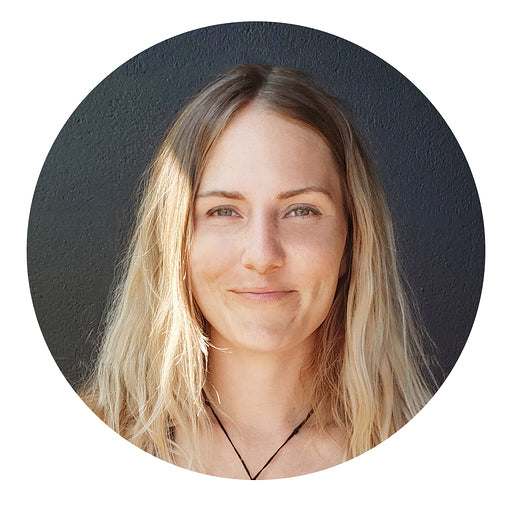
About Ashley Dellinger
Ashley Dellinger is a trailblazer in the cannabis and hemp sectors, serving as the Director of Innovation at The Hemp Collect. With a keen visionary mindset, she not only propels advancements in these industries but also showcases her versatility as a seasoned professional writer based in Oregon. As a collaborative force, Ashley works alongside leading brands, processors, and retailers to elevate industry standards. Ashley Dellinger's work not only sets new benchmarks but also inspires others to pursue excellence. For a closer look into her insights and experiences, connect with Ashley on LinkedIn, Instagram, and Facebook.

